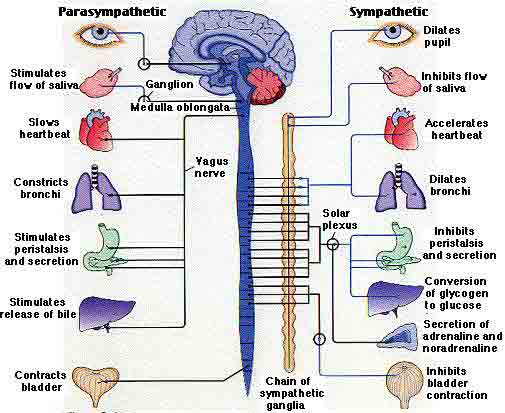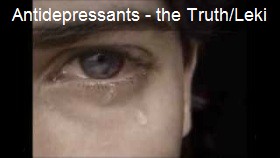
LINKS
Our blog ![]()
Neuroscience and Psi ![]()
Toxic Antidepressants
Ask a Patient about meds
drugs.com/drug_interactions
Dr. Peter Breggin
Dr. David Healy
The Icarus Project
Seroxat Sufferers by Fiddaman
www.femhc.org
Surviving Antidepressants
GoodNewsNetwork
Robert Whitaker's blog
R. Whitaker Mad in America
Mark Foster
Antidepressantsfacts.com
www.benzo.org.uk
Benzobuddies.org
Crazymeds.us
SSRI Stories
Consequences
Antidepressants and "tolerance" or "poop-out"
After taking the drug for some time, the drug becomes less effective, and many people begin to experience the
tolerance withdrawal symptoms (anxiety, depression, dizziness, blurred vision, insomnia, and others).
At this point, the doctor usually doubles the dose of the drug (which allows for it to work a year or two more), or s/he switches
the antidepressant to another. The worsening of the patient’s state is usually attributed to the original condition
and not to the side effects of the drug.
When this approach eventually fails too, antipsychotics or/and anxiolytics
are added into the mix, effectively curing the side effects of their predecessors.
The patient unavoidably enters the downward spiral of addiction.
Tolerance may take different forms; the patient’s condition may gradually worsen over the course of years, or
the worsening may occur quite abruptly, sometimes as fast as within a few weeks or months.
After taking antidepressants for a long period of time, it gets to the
point when the drug is no longer working and the patient begins to experience withdrawal symptoms (anxiety, depression,
insomnia, dizziness, and many others).
In most cases the doctor doubles the dose (which allows to temporarily hold off the symptoms), or he switches antidepressants.
When this proves insufficient, also antipsychotics or/and anxiolytics are added to the mix.
Eventually the patient gets trapped in a spiral of addiction – each of the drugs masks the side effects of its predecessor.
The worsening of the symptoms is usually mistakenly attributed to an aggravation of the patient’s original condition.
Tolerance may be reached after several years of taking SSRIs, during which time the symptoms gradually worsen, or much
more quickly, that is even within a couple of months after going on drugs.
Adverse reaction to an antidepressant
Some people may experience an adverse reaction to the drug after taking it for as short as a few weeks or days (sometimes even a single dose of the drug may be enough). The symptoms resemble those of the protracted withdrawal syndrome. It may take up to 24-36 months to recover from the adverse reaction.
Protracted Withdrawal Syndrome or SSRI Discontinuation Syndrome
Reducing the dose of antidepressants after years of taking them (by either slowly weaning of off
them or stopping them abruptly) may throw the body into a state of severe neurological
and hormonal dysregulation, the symptoms of which, both physical and psychological, can persist
for months or even years. Due to the severity of the symptoms, performing the simplest of life tasks
becomes almost impossible for those suffering from Withdrawal Syndrome.
As shown in the picture below, the functioning of both the sympathetic and parasympathetic systems
is severely compromised as the body’s chemistry (especially the production of serotonin, adrenalin,
cortisol, and dopamine) is thrown off balance. The autonomic nervous system effectively develops a
case of dysautonomia – malfunction of the autonomic nervous system.

Withdrawal symptoms during tapering can include:
- anxiety, phobias, OCD, depression and obsessive thoughts
- insomnia
- body pains
- depersonalization and derealization
- gastrointestinal problems
- sensory hypersensitivity
- cognitive problems
- electrical discharges in the head, so called “brain zaps”
Life during Protracted Withdrawal Syndrome
All body functions are severely impacted - the survivor has serious problems eating, breathing, walking and
sleeping. Although the recovery process may take months or years, and although new symptoms may appear even
long into withdrawal, the central nervous system is able to heal successfully.
This is a website of a peer support community on the Internet. Suggestions, opinions and advice provided by
anyone on this site should not be considered as professional services, and are no substitute for professional
health care. Please consult your own trusted health professional before making any changes to your medication,
or making any other health decisions.


